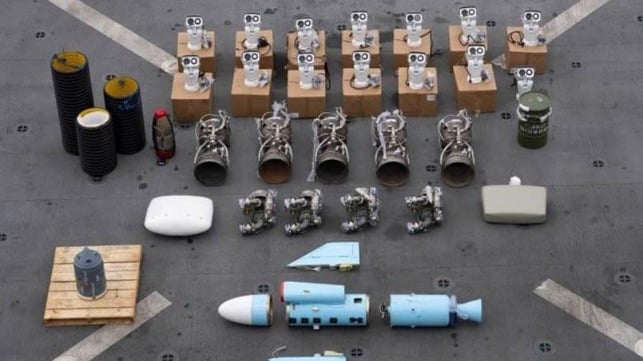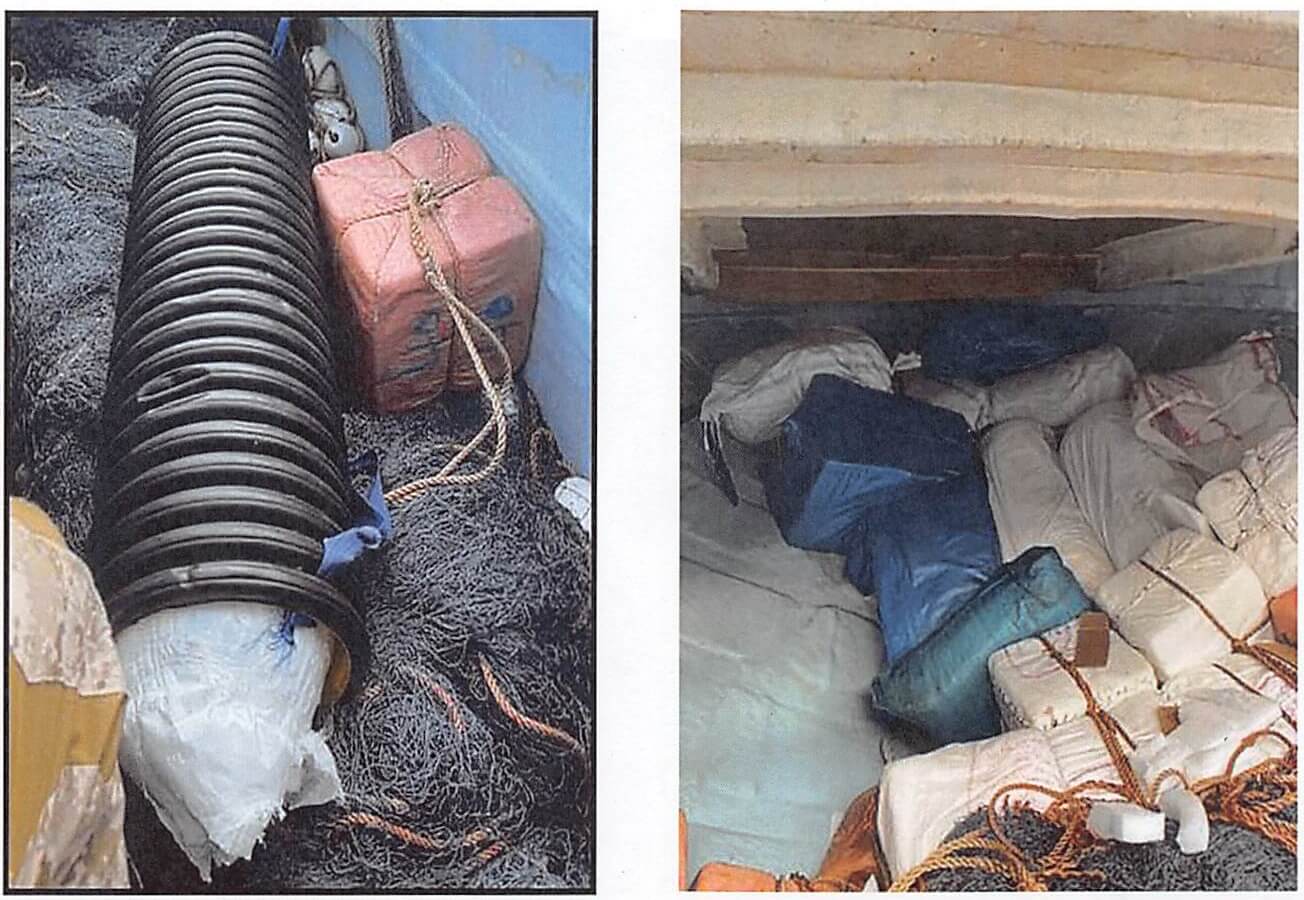Three Men Charged With Smuggling Iranian Missile Parts to Houthis

On Wednesday, the U.S. Department of Justice unsealed criminal charges against two Iranian brothers and a Pakistani captain who allegedly set up the missile-smuggling voyage that U.S. Navy SEALs busted off Somalia in January.
Shahab and Yunus Mir’kazei, the Iranian nationals, allegedly hired Pakistani dhow captain Muhammad Pahlawan for multiple voyages in order to move advanced weaponry to Yemen. The cargoes included propulsion and guidance parts for ballistic missiles and anti-ship cruise missiles - the very same weapons that Houthi terrorists have wielded against commercial shipping in the Red Sea, resulting in the deaths of multiple seafarers.
According to the indictment, Pahlawan - who is in U.S. custody - made three trips on behalf of the Mir'kazei brothers' smuggling network, starting last October. On each trip, Pahlawan's dhow called at the Iranian port of Chabahar to take on illicit weapons cargoes, which the crew stowed in the vessel's net hold. The dhow would then transit to waters just off Somalia, where it would rendezvous with another small vessel and transfer over the cargo for final delivery to Houthi forces. The Mir'kazei brothers organized, coordinated and funded each voyage, using the hawala system to make transfers.
Pahlawan's third and final trip began in January 2024. As the dhow approached the Somali coast, a team of U.S. Navy SEALs and a U.S. Coast Guard boarding party approached the vessel in order to carry out a flag verification (the vessel was stateless).
According to the DOJ, Pahlawan instructed the vessel's crew to light the dhow on fire. This did not work, so he also ordered them to keep quiet about his identity as the captain; instead, the crew pretended that the captain had transferred to another boat, leaving no one in charge.
On board the dhow, the boarding team found guidance systems, motors and a warhead for the Noor missile system, motors for the Qiam-4 missile, and radar antenna assemblies. These parts were consistent with previous interdicted arms shipments from Iran to Yemen, reflecting a known pattern of component imports and local assembly for missile production.
 Courtesy DOJ / CENTCOM
Courtesy DOJ / CENTCOM
Tragically, during the operation, two Navy SEALs were lost at sea when they fell over the side. After an exhaustive search, they were declared deceased.
After an investigation, the department charged Shahab Mir’kazei, Yunus Mir’kazei and Muhammad Pahlawan with five serious counts, including: providing material support to terrorists, resulting in death; participating in weapons of mass destruction threats to the United States; and conspiring to commit violence against maritime navigation, resulting in death.
Pahlawan was also charged with witness tampering and providing false information to law enforcement, plus an additional charge of violence against maritime navigation.

that matters most
Get the latest maritime news delivered to your inbox daily.
If the Mir’kazeis are captured and convicted on all charges, they (and Pahlawan) could face up to life in prison.
Three crewmembers, Mazhar Mohammad, Ghufran Ullah, and Izhar Muhammad, also face charges of providing false information to law enforcement. Like Pahlawan, they are in American custody; the Mir’kazei brothers are wanted, and presumably located in Iran.
